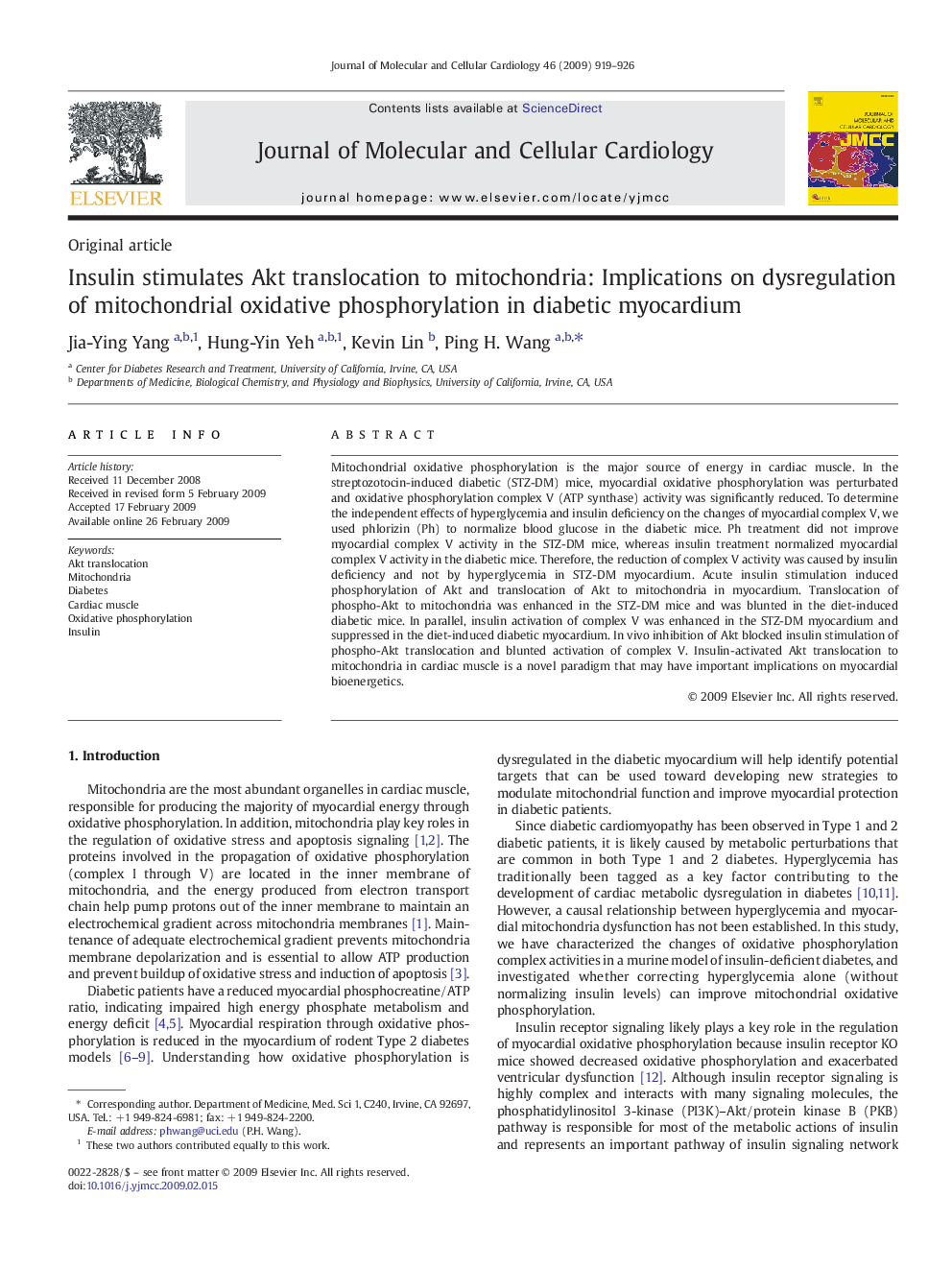| Article ID | Journal | Published Year | Pages | File Type |
|---|---|---|---|---|
| 2191120 | Journal of Molecular and Cellular Cardiology | 2009 | 8 Pages |
Mitochondrial oxidative phosphorylation is the major source of energy in cardiac muscle. In the streptozotocin-induced diabetic (STZ-DM) mice, myocardial oxidative phosphorylation was perturbated and oxidative phosphorylation complex V (ATP synthase) activity was significantly reduced. To determine the independent effects of hyperglycemia and insulin deficiency on the changes of myocardial complex V, we used phlorizin (Ph) to normalize blood glucose in the diabetic mice. Ph treatment did not improve myocardial complex V activity in the STZ-DM mice, whereas insulin treatment normalized myocardial complex V activity in the diabetic mice. Therefore, the reduction of complex V activity was caused by insulin deficiency and not by hyperglycemia in STZ-DM myocardium. Acute insulin stimulation induced phosphorylation of Akt and translocation of Akt to mitochondria in myocardium. Translocation of phospho-Akt to mitochondria was enhanced in the STZ-DM mice and was blunted in the diet-induced diabetic mice. In parallel, insulin activation of complex V was enhanced in the STZ-DM myocardium and suppressed in the diet-induced diabetic myocardium. In vivo inhibition of Akt blocked insulin stimulation of phospho-Akt translocation and blunted activation of complex V. Insulin-activated Akt translocation to mitochondria in cardiac muscle is a novel paradigm that may have important implications on myocardial bioenergetics.
